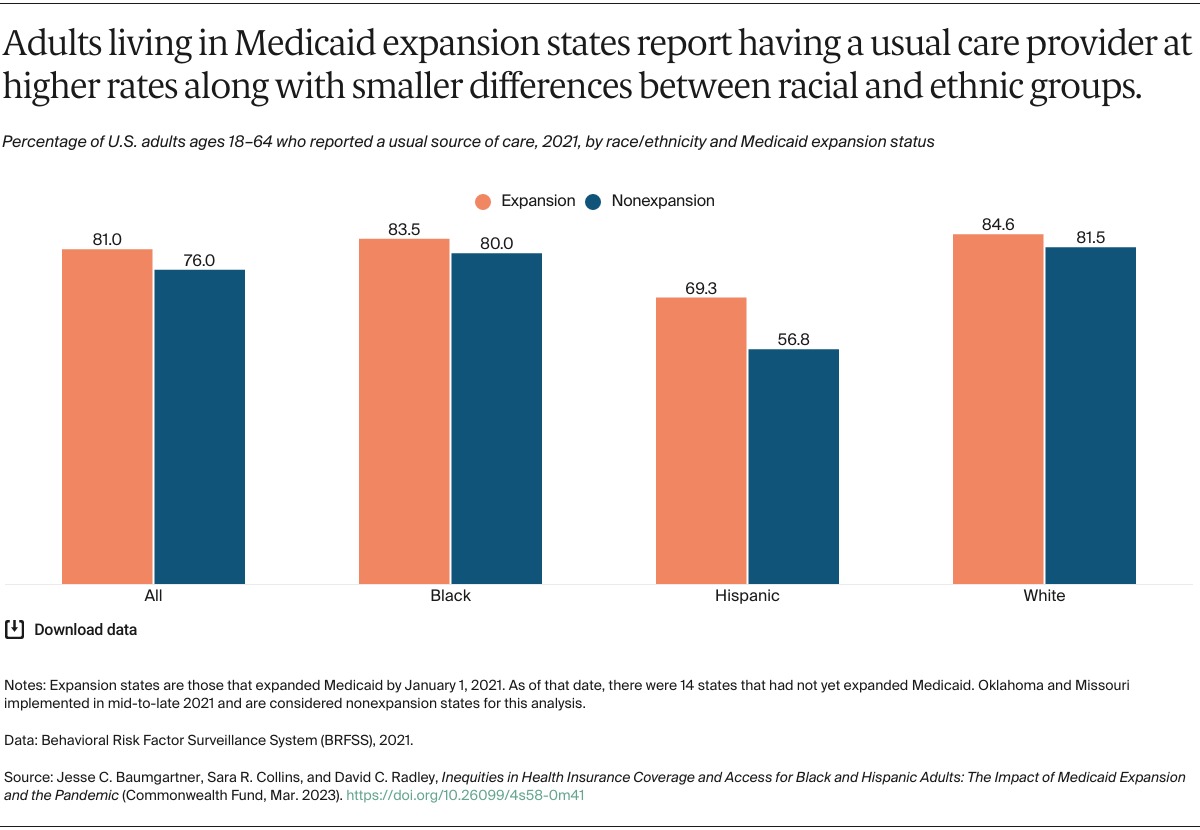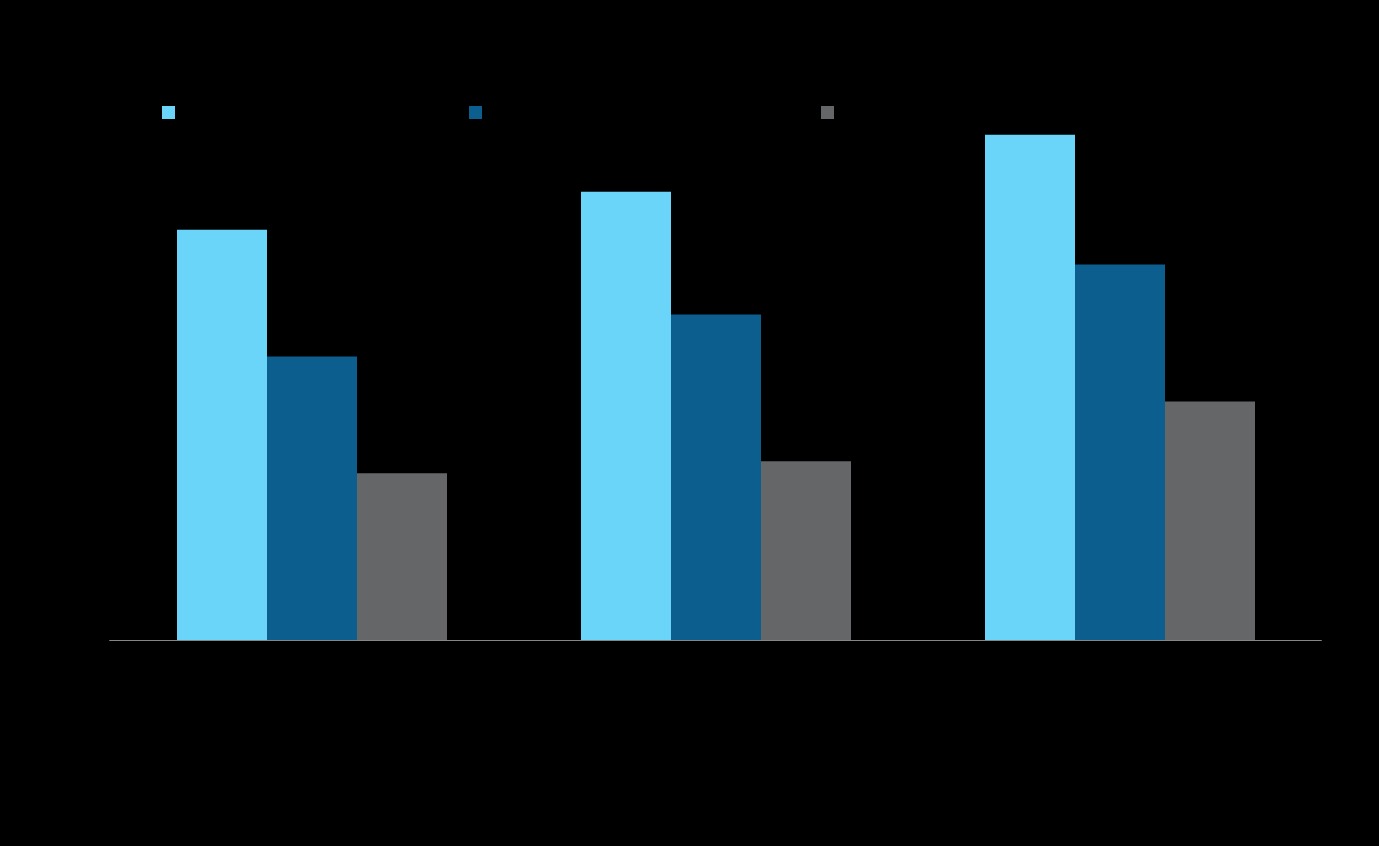Changes made to Medicaid programs in an effort to address gaps in health coverage in the U.S. have inadvertently left certain populations, especially people of color, without adequate coverage.
Although the insured rates among the non-elderly population in the U.S. increased during the Covid pandemic, reaching 3.4 million enrollments between 2019 and 2022, disparities emerged.
Medicaid coverage expansions were delayed in some states, causing insured rates to decline, and Black Americans remained disproportionately uninsured compared to white Americans in 2022, with a 10% uninsured rate for Black Americans versus 6.6% for white Americans.

Medicaid Statistics Amid Number Of Black Americans (Credits: Commonwealth Fund)
The racial coverage gap is primarily attributed to states that have not expanded Medicaid under the Affordable Care Act, leaving a higher percentage of Black individuals without access to Medicaid coverage.
As a result, half of Black Americans under 65 were insured through employers or private insurers, while nearly 40% relied on Medicaid or another public option.
Unemployment rates among Black Americans are consistently higher than the national average, limiting access to employer-based health insurance. In states without Medicaid expansion, 13.3% of non-elderly Black Americans are uninsured, compared to 7.3% in states with expansion.
Additionally, a provision of Medicaid that automatically reenrolled participants ended in March 2023, leading to administrative barriers and coverage lapses for millions.
Community health centers, such as West Oakland Health, are working to address the coverage gap by reaching out to Medicaid patients to ensure they renew their coverage, particularly in states that have not expanded Medicaid.























